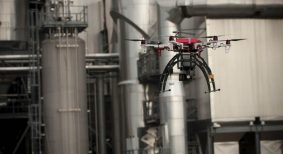The developers of new energy performance labels for pumps, fans and compressors are seeking building operations data that will be key for evaluating their work as it nears completion. The Extended Motor Product Label Initiative (EMPLI) is a collaborative effort of five major manufacturer and trade associations, U.S. based utilities and energy efficiency advocates to produce a tool for assessing the interaction of motors, motor-driven components and controls.
“There are greater opportunities to save energy through system optimization than through improvements to the efficiency of an individual device,” says Ethan Roberts, a senior manager with the American Council for an Energy-Efficient Economy (ACEEE), which serves as the convening organization for EMPLI.
As envisioned, voluntary performance labels will provide prospective purchasers with information about the energy efficiency of the extended product — i.e. the fan, pump or compressor, its motor and associated controls. Three expert working groups, specifically focused on fans, pumps and compressors, have spent the past two years devising comparative performance metrics and test standards, which will also be aligned with U.S. Department of Energy regulations.
In the next step, the working groups need operational data in order to determine potential savings. To begin, they are asking building owners/operators to submit information about water pumping system operating hours and loads to a confidential database. (Future surveys will gather information about fans and compressors.)
Data collection sheets can be downloaded or filled out and submitted electronically through the Hydraulic Institute‘s website. Participants will later receive a copy of the aggregated data.
“The goal of this collaborative effort is the development of new voluntary product performance labels that can be used as purchasing specifications by companies and public institutions, and that can become the basis for an entirely new type of prescriptive rebate energy efficiency program that attributes an average energy savings to a qualifying product,” Roberts explains.
Other participating associations include: the Air Movement and Control Association International; Compressed Air and Gas Institute; Fluid Sealing Association; and National Electrical Manufacturers Association.






